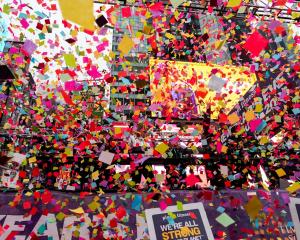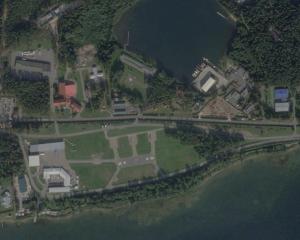
It frustrates many travellers that sometimes the trip to Paris is cheaper. Advance fares to the French capital on the high-speed Eurostar train start at 59 pounds ($NZ168.28), 7 pounds cheaper than a standard off-peak return to the city in northwest England.
A major report released on Thursday provided more fuel for passenger complaints, finding that train travel in Britain is expensive, frustrating and confusing.
The government-commissioned study found that British rail journeys are among the highest-priced in Europe, while passengers find the country's Byzantine fare structures baffling.
The report by watchdog group Passenger Focus said the same train could contain passengers who had paid 150 pounds for a ticket and others who paid just 10 pounds. It said the structure of long-distance train fares was "complicated and not logical."
The study found that flexible, last-minute tickets to London from other British cities were almost twice as expensive as comparable journeys in Germany - the next most expensive among nine countries studied - and more than three times costlier than in the cheapest, The Netherlands.
British commuter journeys were up to three times more expensive than in the other countries studied.
Britain's state run-rail service was privatized in the mid-1990s and broken up into a swarm of businesses. In the years that followed there were rising complaints about overcrowding, safety and deteriorating service.
Transport expert Christian Wolmar said British tickets cost more because "traditionally we've expected passengers to pay a higher proportion of the cost of running the railway than taxpayers."
"On the Continent it is seen as something of a public service. In Britain, we expect it, as much as possible, to pay for itself," he said.
After a series of deadly accidents, blamed by many on underinvestment, the government dismantled the private company that had been put in charge of rail infrastructure and replaced it with a nonprofit firm. The firm, Network Rail, and train companies that use its tracks, have spent hundreds of millions of pounds on upgrading track and replacing aging trains.
But it hasn't been enough. The Department for Transport said bringing fares into line with other European countries, where rail travel is more heavily subsidized, would cost taxpayers an extra 500 million pounds a year - not an enticing prospect during a recession.
"There is no free lunch here," said transport minister Andrew Adonis. "We as a community pay for this one way or another."
The report found that bargains are available - but only if passengers can book in advance and commit to a specific train.
If a Londoner wants to travel to Manchester and back in rush hour and on a flexible ticket, it will cost 247 pounds - more than many air fares. Book well in advance, and the fare can be as little as 16 pounds.
Passenger Focus chairman Colin Foxall said passengers were "broadly happy with the quality of rail services, but not happy with the value for money they are getting."
The report said only 46 percent of passengers surveyed thought they were getting value for money.
Norman Baker, transport spokesman for the opposition Liberal Democrats, said the report showed that "British passengers are the most ripped off in Europe."
The government insisted fares had fallen relative to earnings since 1997, when the governing Labour Party took power.
On the positive side, the report said British train services were more frequent than those in many other European countries.
It called on officials to simplify fare structures and cap price increases, which are regulated by government. Fares rose an average of 6 percent in January from a year earlier.












